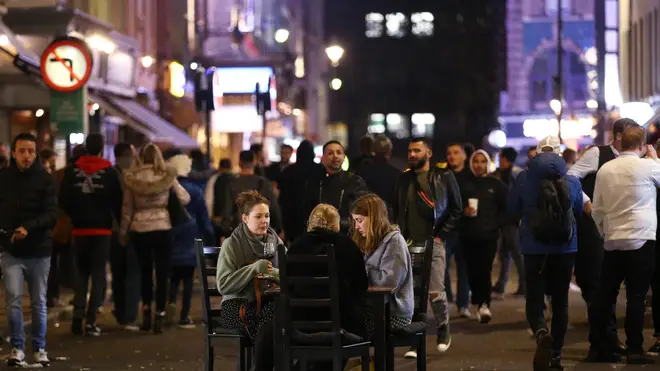
Henry Riley 3pm - 6pm
30 September 2020, 13:04

Money management app Revolut analysed its customers’ spending habits following the introduction of the new rule last week.
Spending by pubgoers appears to have increased in the hour leading up to the new 10pm curfew, as customers get in one last round.
The new rule was imposed last week for pubs, restaurants and bars in England.
Money management app Revolut analysed its own UK customers’ spending habits following the introduction of the new rule.
It found that the average spend in pubs per person on Saturday September 26 between 9pm and 10pm was around £5 more than it had been across the Saturdays in September 2020 before the curfew was announced.
The average spend during this hour on Saturday September 26 was £24.30.
This was £5.21 higher than the average spend between 9pm and 10pm during the Saturdays in September before the curfew, when it stood at £19.09.
On Friday September 25, the average pub spend between 9pm and 10pm per person was £22.83.
Across the Fridays in September 2020 before the curfew, the average spend between 9pm and 10pm was £18.70.
On Thursday September 24, the average spend in the final hour was £23.74, whereas on a typical Thursday, before the curfew was introduced, it would normally be £19.20, Revolut said.
Spending on Sunday September 27 was also higher during the hour leading up to the curfew than for a usual Sunday in September among Revolut customers.
The average spend per person between 9pm and 10pm on September 27 was £20.25.
Across the Sundays in September 2020 before the curfew, the average spend during this hour was £18.10.
The 10pm curfew has been criticised by the hospitality sector, as the furlough scheme winds down.
As well as the economic impacts, health concerns have also been raised about the new rule.
There have been concerns around the curfew leading to crowds of people emerging onto the streets at once and trying to board public transport at the same time, potentially increasing the risk of spreading coronavirus.